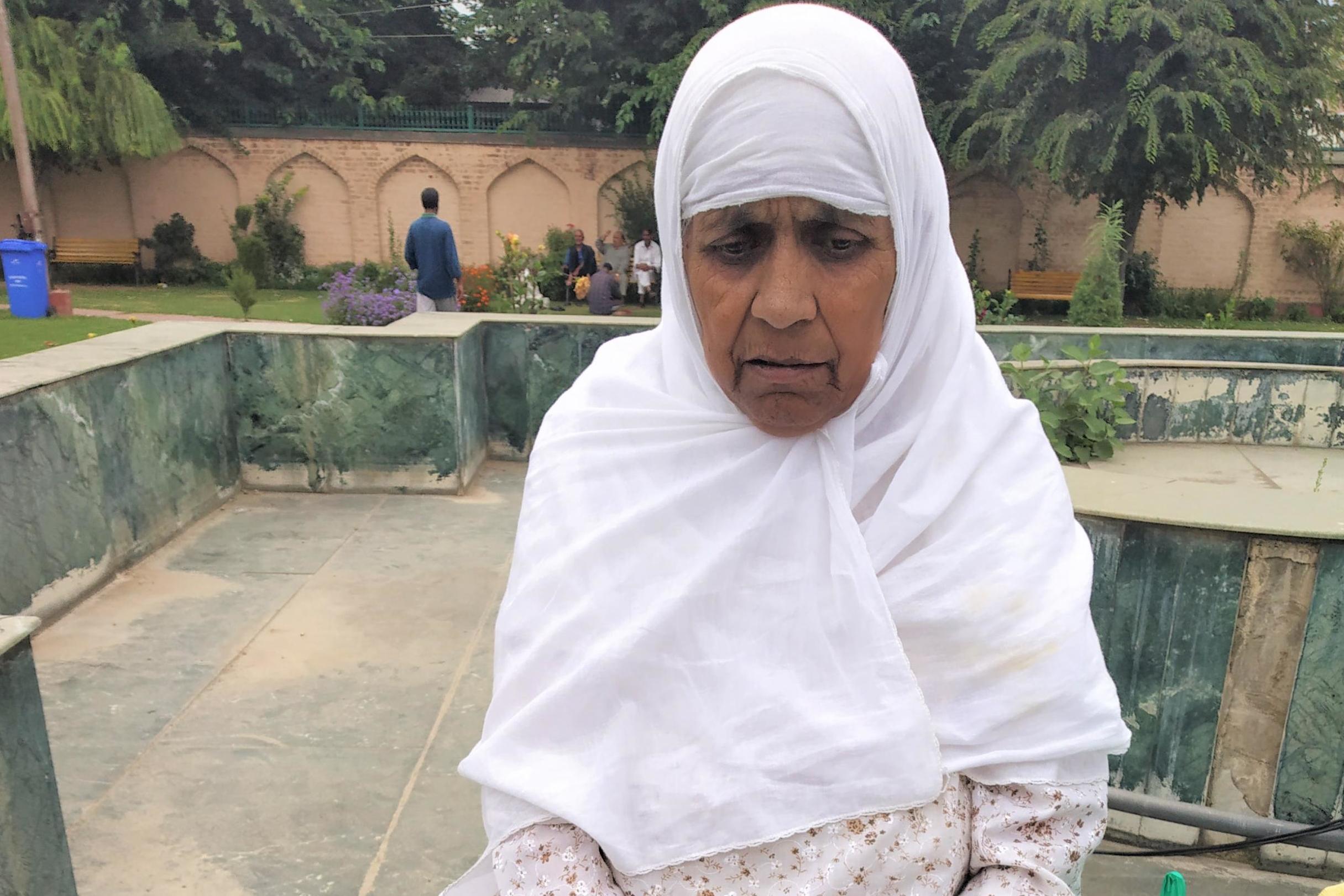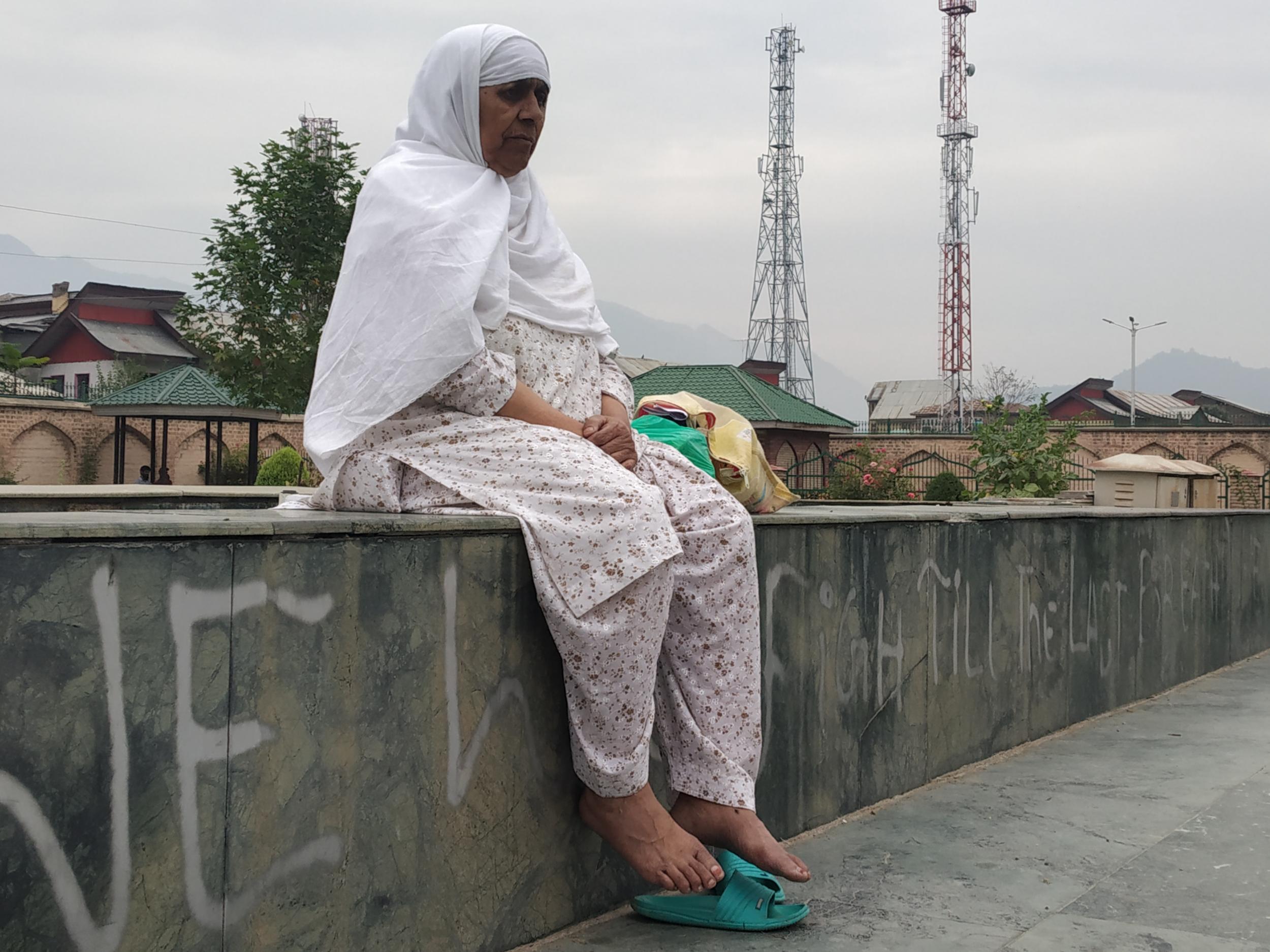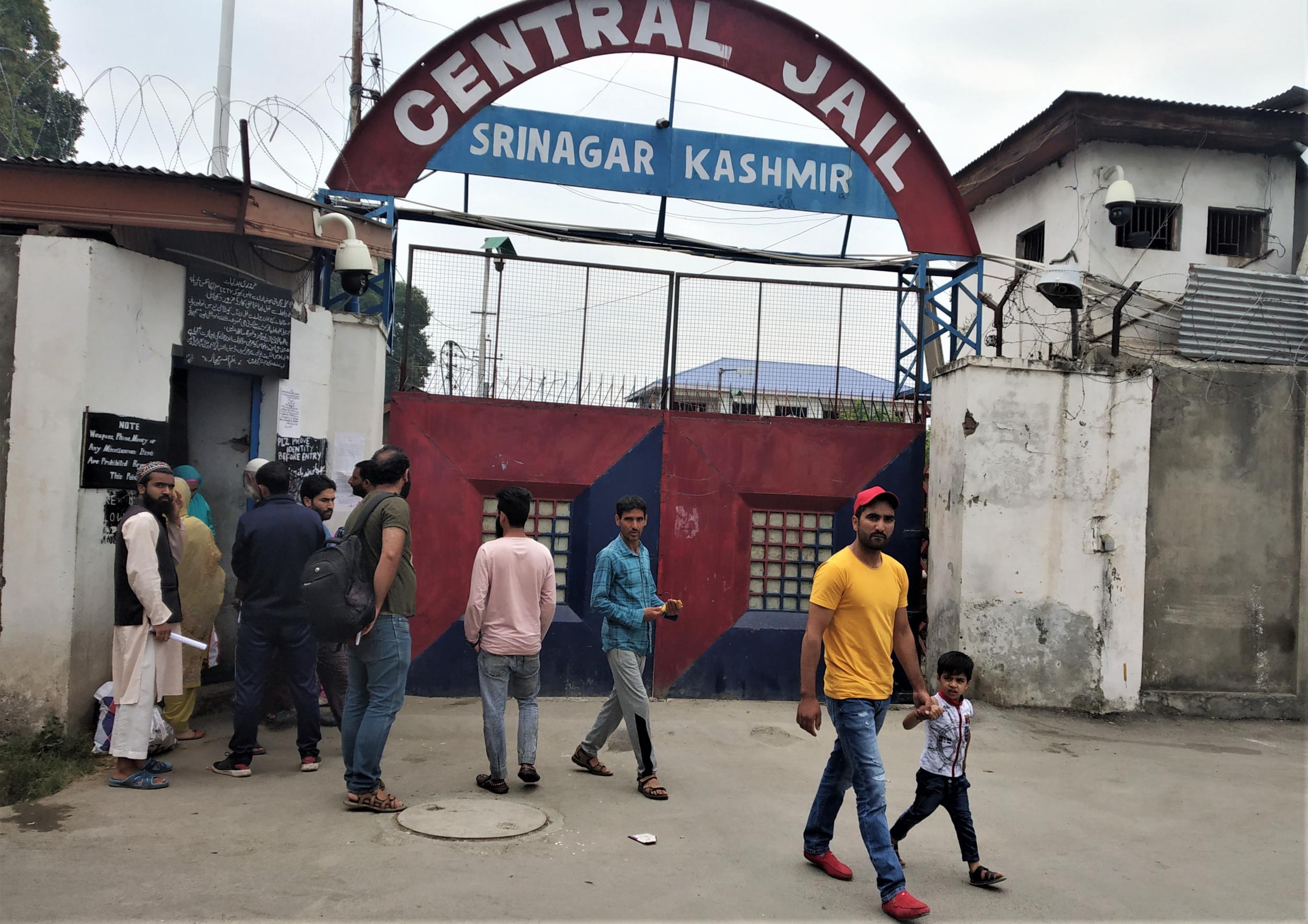Thousands languish in Kashmir prisons without trial: ‘My brother is too weak for jail’
Authorities are increasingly using a draconian law that means you can hold people in jail for up to six months without trial

Your support helps us to tell the story
From reproductive rights to climate change to Big Tech, The Independent is on the ground when the story is developing. Whether it's investigating the financials of Elon Musk's pro-Trump PAC or producing our latest documentary, 'The A Word', which shines a light on the American women fighting for reproductive rights, we know how important it is to parse out the facts from the messaging.
At such a critical moment in US history, we need reporters on the ground. Your donation allows us to keep sending journalists to speak to both sides of the story.
The Independent is trusted by Americans across the entire political spectrum. And unlike many other quality news outlets, we choose not to lock Americans out of our reporting and analysis with paywalls. We believe quality journalism should be available to everyone, paid for by those who can afford it.
Your support makes all the difference.Mugli Sofi, 70 years old, has been waiting anxiously outside Central Jail Srinagar in Kashmir’s summer capital to meet her son, Rafiq, for several hours.
This is the first time they would be seeing each other since Rafiq, 42, was picked up by Indian police during a night raid on their house on 28 August in the Danderkha locality of the city.
“They (Indian police) scaled the walls and entered our house in the dead of night, without prior notice,” Sofi tells The Independent.
Sofi breaks down when she recalls what happened. With her son the sole breadwinner in the family, she is frightened for the future.
“He is innocent and has never participated in anti-India protests,” says Sofi, as she waits for her turn outside the jail.
“My son works as stone mason and grew up in difficult times after death of his father. He has had to shoulder responsibility of family too early in his childhood.”
According to Sofi her son was picked up in lieu of his nephew, Omair, 16, who Indian forces accuse of throwing stones during demonstrations.
“They yelled at us asking for Omair. When they couldn’t find him they took away my son instead,” she recalls.
The act of throwing stones at Indian forces has become a means of resistance for the youth in Kashmir. Police often respond with firing teargas and shelling.
Sofi says Omair lives some 4km away from their house and has gone into hiding after his uncle’s arrest.
She has received no word from authorities as to how long her son will be kept behind the bars.
The prison has an intake capacity of 360, but usually hosts over 500 inmates.
“Only three members from the immediate family are allowed to meet their kin for 30 minutes in the jail once in a week,” a police officer at the jail says.

Suddenly, Sofi’s number is called from behind the jail’s lofty gates, and the woman rushes to meet her son.
Official figures shared with The Independent reveal that 3500 people have been arrested since 5 August, when India revoked Kashmir’s special status.
Of them roughly 292 have been arrested and held in prison under Kashmir’s draconian Public Safety Act (PSA) – a law that stipulates that a person can be detained without trial for up to six months and lodged in different parts of India.
“Our detention rate is much lower than our pick-up rate. We have just a few hundred with us,” the director general of police, Dilbagh Singh, says.
Outside a young woman, Haseena, is waiting to meet her brother Shabir Ahmad Ganaie, 36, who was arrested a day after India’s decision.
“They fear that my brother will assemble youth to protest against India,” says Haseena, who travelled nearly 50km, mostly on foot, to meet her brother.
She is terrified of how prison may take its toll on Ganaie, who only has one kidney.
“He is too weak to bear jail,” she says.
Close by, Iqbal Teli is waiting to see his brother.

The story is similar – according to Iqbal, his 19-year-old brother Mudasir Maqbool, from the Mir-Maidan village in southern Kashmir, was arrested last month along with three other youths during protests.
“(Security forces) accused him of throwing stones at police and paramilitary personnel,” says Teli, who along with his parents and sister has travelled nearly 90km to reach the prison.
“We filed a bail application in the local court at Anantnag, pleading that Maqbool is innocent,” he says.
He is still being held under the PSA law, and unless it is overturned by the High Court, Maqbool is likely to stay in the jail for several months.
With the unprecedented wave of arrests, jails in the disputed region are overcrowded and authorities have shifted dozens of prisoners to cells in mainland India.
Family members of the detained allege that Kashmiri prisoners are subjected to worst kind of harassment and abuse in Indian jails.
Since 5 August, Kashmir has been on lockdown, with the internet and communication networks suspended. Schools are open, but few students are attending, and there is no public transport running.
Indian security personal flank the streets, fearing a backlash against Delhi’s decision to abrogate Article 370, thereby stripping Kashmir of its separate flag and constitution and designating it as part of the mainland.
Authorities have only admitted to the death of one civilian, but families have alleged to The Independent that more have been killed but their death records deliberately suppressed.
Join our commenting forum
Join thought-provoking conversations, follow other Independent readers and see their replies
Comments